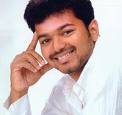Name:Mohandas Karamchand Gandhi
Father:Karamchand Gandhi
Mother:Putlibai
Born:2 October 1869 Porbandar, Kathiawar Agency, British India
Died:30 January 1948 (aged 78) New Delhi, Union of India
Cause of death:Assassination
Nationality :Indian
Other names:Mahatma Gandhi
Education :University College London
Known for :Indian Independence Movement
Political party:Indian National Congress
Religious beliefs:Hinduism
Spouse(s):Kasturba Gandhi
Children: Harilal,Manilal,Ramdas,Devdas
In South Africa, Gandhi faced discrimination directed at Indians. He was thrown off a train at Pietermaritzburg after refusing to move from the first class to a third class coach while holding a valid first class ticket. Traveling further on by stagecoach, he was beaten by a driver for refusing to travel on the foot board to make room for a European passenger. He suffered other hardships on the journey as well, including being barred from several hotels. In another incident, the magistrate of a Durban court ordered Gandhi to remove his turban, which he refused to do. These events were a turning point in his life, awakening him to social injustice and influencing his subsequent social activism. It was through witnessing firsthand the racism, prejudice and injustice against Indians in South Africa that Gandhi started to question his people's status within the British Empire, and his own place in society.
In 1915, Gandhi returned from South Africa to live in India. He spoke at the conventions of the Indian National Congress, but was primarily introduced to Indian issues, politics and the Indian people by Gopal Krishna Gokhale, a respected leader of the Congress Party at the time.
Gandhi's principles
See also: Gandhism
Truth
Gandhi dedicated his life to the wider purpose of discovering truth, or Satya. He tried to achieve this by learning from his own mistakes and conducting experiments on himself. He called his autobiography The Story of My Experiments with Truth.
Gandhi stated that the most important battle to fight was overcoming his own demons, fears, and insecurities. Gandhi summarized his beliefs first when he said "God is Truth". He would later change this statement to "Truth is God". Thus, Satya (Truth) in Gandhi's philosophy is "God".
Nonviolence
Although Mahatama Gandhi was in no way the originator of the principle of non-violence, he was the first to apply it in the political field on a huge scale.[28] The concept of nonviolence (ahimsa) and nonresistance has a long history in Indian religious thought and has had many revivals in Hindu, Buddhist, Jain, Jewish and Christian contexts. Gandhi explains his philosophy and way of life in his autobiography The Story of My Experiments with Truth


























![]()